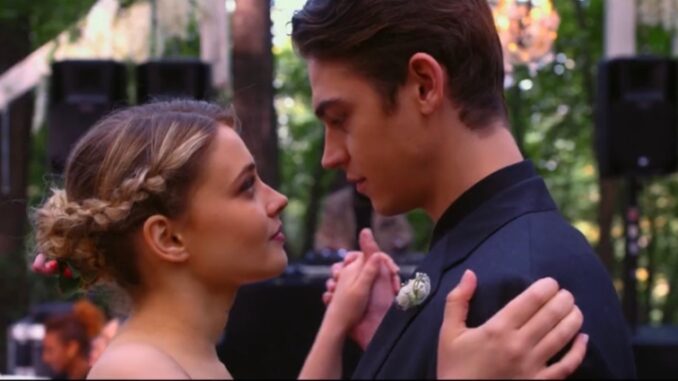
The Echo of Absence: Fans React to Tessa’s Ghost in After Everything
The After saga, born from Wattpad and blossoming into a global publishing and cinematic phenomenon, cultivated a fanbase unlike many others. These were readers and viewers deeply invested, almost religiously, in the tempestuous, all-consuming love story of Tessa Young and Hardin Scott. Their journey, fraught with toxicity and redemption, held a fervent grip on millions. So, when news trickled down, and finally, the reality hit that Josephine Langford’s Tessa Young would be conspicuously absent from After Everything, the supposed final cinematic chapter, the reaction was not merely disappointment; it was a profound, echoing lament, a digital protest that underscored the very essence of character devotion.
The initial murmurings of Tessa’s scaled-back role, and then her outright absence, struck the fandom like a thunderclap. For years, fans had watched Tessa navigate Hardin’s storms, her growth from an innocent college student to a resilient young woman being as central to the narrative as Hardin’s own tortured evolution. She wasn't just a character; she was the other half of the story’s beating heart, the anchor to Hardin’s chaos, the "good girl" who fell for the "bad boy" and forever changed him. After Everything was meant to be the culmination, the hard-won peace, the complete picture of their happily ever after. To imagine this concluding chapter without one half of the iconic duo felt not just incomplete, but fundamentally misaligned with the very premise of the After universe.
The ensuing fan reaction was a fascinating, often furious, illustration of collective emotional investment. Social media platforms became a veritable wailing wall. On Twitter, hashtags like #WhereIsTessa and #NoTessaNoWatch trended, keyboards clattering with a mix of disbelief and fury. Users posted side-by-side comparisons of book covers featuring both characters next to promotional material for the film showing only Hardin, the stark visual gap speaking volumes. TikTok, with its rapid-fire viral nature, saw a flurry of videos set to sad or angry audios, featuring clips of Tessa from previous films, overlaid with text bemoaning her absence. Fans felt cheated, their years of dedication seemingly invalidated by a narrative choice – or perhaps a production constraint – that severed the story’s core artery.
What fueled this fire was the understanding that Tessa was not a peripheral character; she was the narrative’s moral compass, the audience’s surrogate, the grounding force that made Hardin’s arc meaningful. Without her, After Everything transformed from a dual perspective of love and recovery into solely Hardin’s journey of self-discovery, divorced from the very person who catalyzed much of that change. Critics and fans alike pointed out the irony: a film meant to conclude a love story where one half of the pair was largely missing felt like a half-finished symphony, a conversation with only one speaker. "How can you tell the 'After' story," one fan posted, "if the 'before' and 'during' was all because of Tessa?"
Beyond the narrative integrity, there was a deeply personal sense of betrayal. Fans had weathered every controversy, every criticism of the books' and films' problematic elements, because they believed in the eventual triumph of Tessa and Hardin's bond. Her absence in the supposed finale felt like a disregard for the emotional contract built over years. It wasn't just about the actor; it was about the character, the spirit of Tessa Young, who had resonated with so many through her vulnerability, resilience, and unwavering, if sometimes misguided, love. The film, in their eyes, became a hollow vessel, carrying the name of a beloved saga but lacking its indispensable soul.
Ultimately, the fervent fan reaction to Tessa’s absence in After Everything was more than just a momentary blip of online outrage. It was a potent demonstration of the profound connection audiences forge with fictional characters. It underscored that for dedicated fans, characters are not mere plot devices; they are companions, reflections, and objects of genuine emotional investment. Tessa Young’s ghost haunted the film, not because she was physically absent, but because her indelible presence in the hearts and minds of her fans refused to be erased, serving as a powerful, poignant reminder of what truly makes a story whole.
